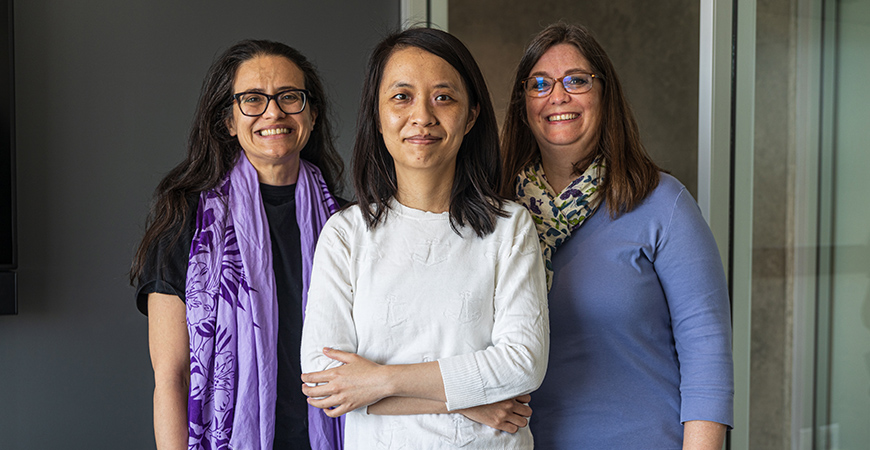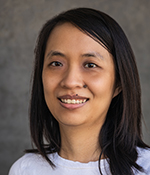
Postdoctoral scholar Lihong Zhao was one of 10 researchers named a 2022 Intersect Fellow by the American Association of Immunologists (AAI) — a first for UC Merced.
The AAI Intersect Fellowship Program for Computational Scientists and Immunologists is intended to improve communication and understanding between immunology researchers and computational scientists.
This year, she will also train in Professor Katrina Hoyer's immunology research lab, learning immunological principles and laboratory techniques.
In 2020, Zhao joined the Department of Applied Mathematics funded by a $2.1 million National Science Foundation Research Training Groups (RTG) grant Professor Arnold Kim and his colleagues secured. Before she stepped foot on campus, she was part of UC Merced COVID modeling Taskforce to help with pandemic planning.
She works in Professor Suzanne Sindi’s lab and her research focuses on developing and analyzing mathematical models of complex biological systems to answer questions relating to public health and ecosystem balance.
 “The fellowship will allow me to acquire wet lab experimental training to balance my expertise in mathematical and computational modeling, which will strengthen my research profile and make me stand out from others,” said Zhao, who earned a Ph.D. in Applied Mathematics from the University of Louisiana, Lafayette. “I’ll be a more competitive candidate on the job market.”
“The fellowship will allow me to acquire wet lab experimental training to balance my expertise in mathematical and computational modeling, which will strengthen my research profile and make me stand out from others,” said Zhao, who earned a Ph.D. in Applied Mathematics from the University of Louisiana, Lafayette. “I’ll be a more competitive candidate on the job market.”
Hoyer said the fellowship highlights the vital role cross-trained scientists play in furthering immunology research experience.
“It’s an opportunity for Lihong to see how we think about the experimental side, what sort of controls we’re considering and the process so that she can see the time frame of experiments and best determine where mathematical modeling and computation would enhance the science,” said Hoyer, who is an AAI member and was named a Public Policy Fellow by the association in 2013. “She can aid us at the most significant points in the experiments and will be more informed as she continues her own career as a computational mathematician.”
Sindi agrees the experience will be invaluable for Zhao’s academic career.
“It’s important to make models that are accurate, predictive and valuable,” Sindi said. “This experience is going to make Lihong a better mathematical biologist.”
Hoyer and Sindi see the fellowship as an opportunity to continue to build their long-standing collaboration that includes a National Institutes of Health R15 grant focused on “Experimental and Mathematical Modeling of CD8 T Cell Dynamics in Autoimmune Disease” and a UC Merced 2020 COVID-19 seed grant.
“This is a prestigious award for our campus. It highlights our computational training program across graduate groups and departments,” Hoyer said.
This is a prestigious award for our campus. It highlights our computational training program across graduate groups and departments.




